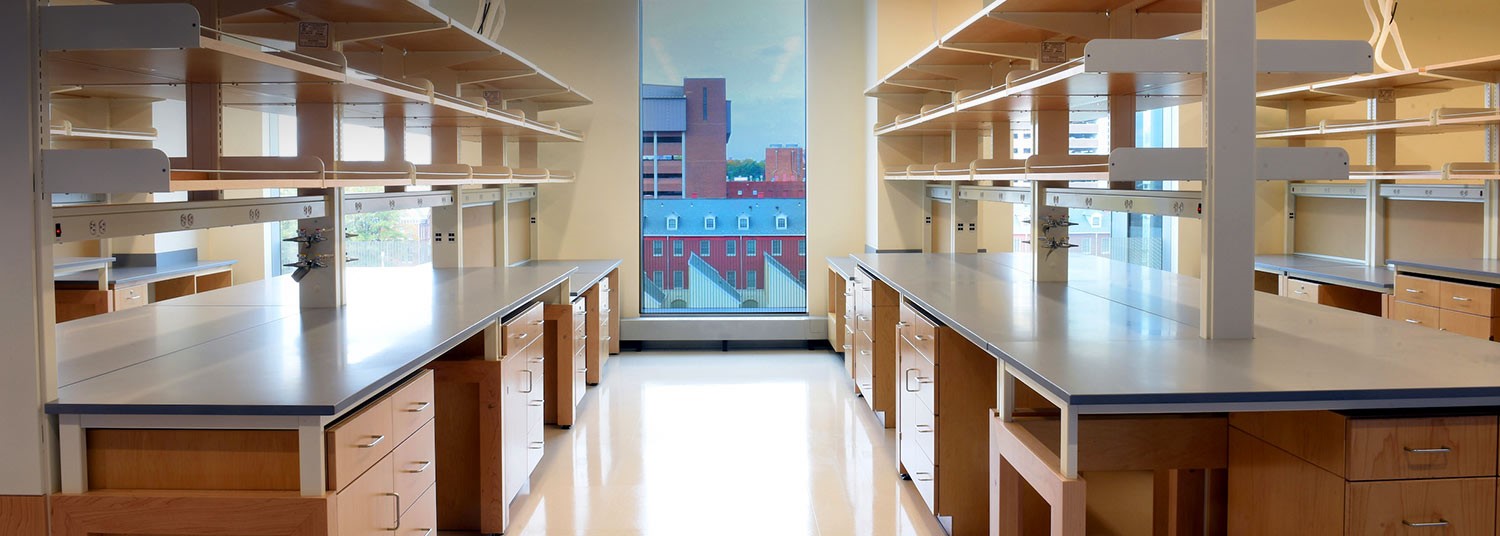
Our laboratories are modern, spacious and well equipped for all aspects of technically advanced neuroscience research. Individual laboratories are diverse and include opportunities for various molecular, cellular, electrophysiological, imaging and behavioral studies. Facilities on campus provide opportunities for confocal microscopy, FACS, DNA sequencing, peptide synthesis and analysis, proteomic studies and associated services for animal care and a Transgenic Mice Core Facility for the design and production of genetically engineered animals.
- Complete list of Core Research Facilities in the School of Medicine
- Facilities at the Dental School
Students also have excellent research and training opportunities in various departments and centers that participate in the Graduate Program in Neuroscience. These include the Maryland Center for Psychiatric Research (MPRC), a cutting-edge research facility with primary focus on schizophrenia and mental disease. The PIN also has a close partnership with the recently established University of Maryland Medicine Institute for Neuroscience Discovery, which will continue to recruit faculty members and provide resources to support translational neuroscience research, aiming to bridge the gaps between basic and clinical neuroscience research happening on our campus. Our Institute for Genome Science (IGS) is an inter-disciplinary, multi-departmental team of collaborative investigators within the University of Maryland School of Medicine. IGS uses large-scale, cutting-edge experimental and computational tools to better understand gene and genome function in health and disease, to study molecular and cellular networks in a variety of model systems, and to generate data and resources of value to the international scientific community. The University of Maryland Center to Advance Chronic Pain Research includes an interdisciplinary team of basic, translational and clinical faculty scientists whom are uniquely poised to conduct research in pain and improve our understanding and eventual management of cancer treatment-related pain.
The Health Sciences Library on campus serves as a regional adjunct to the National Library of Medicine. In addition to housing a large number of bound volumes and current periodicals, it offers access to multiple computer databases in the sciences and provides computerized reference and bibliographic services.
